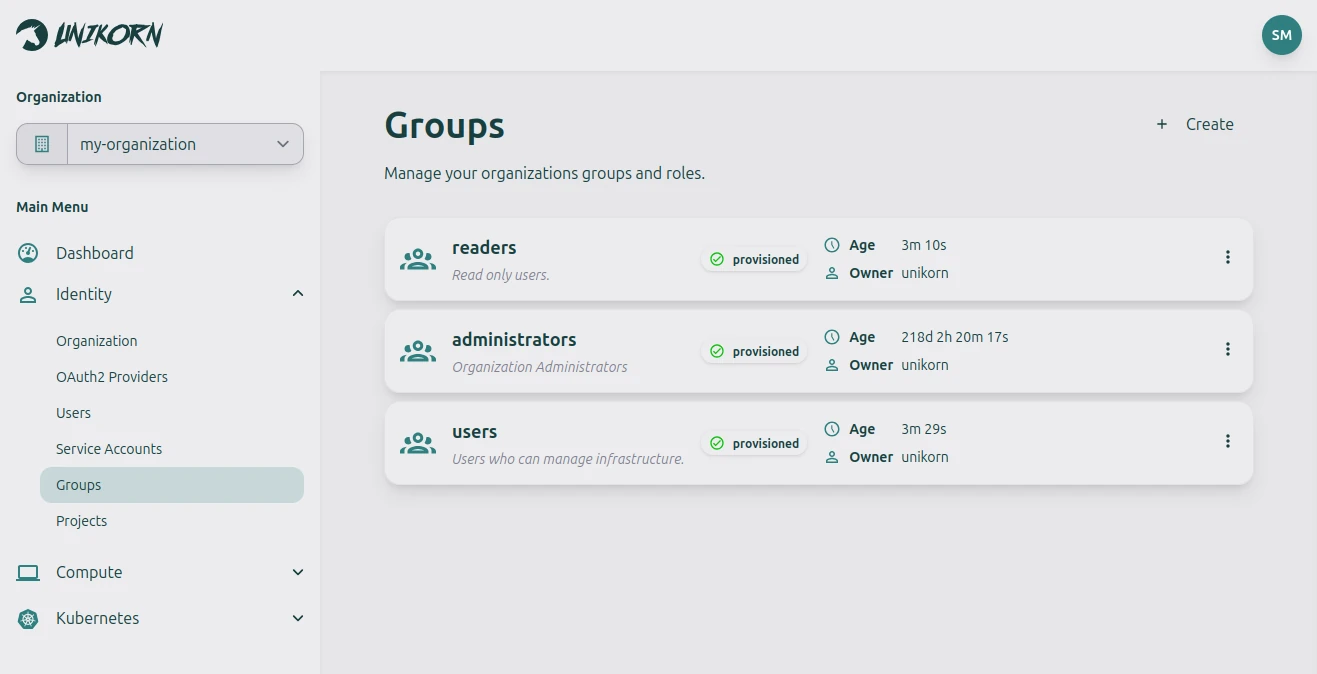We've built a system to be truly proud of, leveraging best-in-breed Open Source components,
and combining this with enterprise standard security best practices. The end result is easy
to use, and secure by default.
Flexible Security
Security is at the heart of everything in Unikorn.
We don't ever collect or manage user passwords or credentials. This functionality is
delegated to Google, Microsoft (covering most enterprise users), and GitHub for
others. You can even bring your own OIDC compliant identity provider if your
organization isn't covered by the supported options.
On top of authentication, Unikorn support flexible role based access control (RBAC)
where users are granted fine-grain access control to individual API endpoints. Most
services act on behalf of a user reducing the permissions a user requires to actually
provision infrastructure.
Multi Region Cloud Providers
Unikorn is architected in a way where it's only concerned with servers, networks,
security group rules, etc. These are abstractions of the underlying cloud provider
implementation, so everything appears and behaves the same. A network, for example,
will be ready to run any kind of workload, handling the HPC requirements of AI
workloads for example.
Regions are defined as instances of a cloud provider e.g. an OpenStack deployment.
Simple Cluster Provisioning and Life-cycle Management
Unikorn natively supports baremetal and Kubernetes cluster provisioning. The focus is
on simplicity. You're only presented with limited options: cluster geometry and core
software versions. This means less time procrastinating and more time doing what you
actually need to do.
For Kubernetes clusters in particular, Unikorn provisions clusters with a known
working set of applications (powered by Helm). These are bundled together into tested
and stable releases, and automatically upgraded to provide security guarantees around
CVE mitigation.

